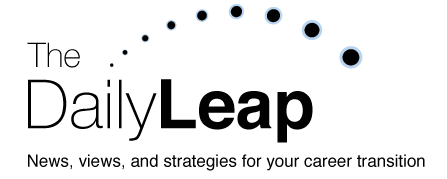Your resume and cover letter were impeccable, and they helped land you an interview. Have you bought in to any of the following interview myths? Read on to learn how to make an impression that lasts.
No need to prepare for the interview: Some feel there's no point in preparing for an interview because either you know the answers to their questions or you do not. Going into an interview without any practice or reflection is a kiss of death. There are two distinct things you can proactively practice before an interview: fleshing out your stories and how you deliver them. Your stories are the content of your interview: the experiences that matter most to the interviewer that will demonstrate competency in the position. Your delivery is the way in which you verbally convey your experiences: with confidence, authenticity, and without interruption. Prepare for your interview by addressing these two areas, using the job description and what you know about the job to create your content and practice your delivery in front of a mirror or with a friend.
Dress doesn't matter: How you dress most certainly matters in an interview, whether you are interviewing for a janitor or CEO position. I recommend dressing for two positions above your own. That typically means a suit, whether you are a man or a woman. Unless you are told specifically how to dress before coming to an interview, dress more formally than informally to show you value professionalism and take the experience seriously.
Interview begins in the interview room: The interview doesn't begin when you get face to face with the interviewer(s): it begins the moment you are contacted for the interview. The way that you treat others - from the human resources representative to the administrative assistant - will reflect on you as a candidate. Convey your most professional self.
Interview types are the same: When most people think of an interview, they think of themselves sitting one-on-one with an interviewer, being asked questions like "what are your weaknesses?" and "why do you want this job?" Interviews can take many forms, including panel interviews, where a group of people interview a candidate, all-day interviews, where a candidate will interview with one or two people for a period of time and then move on to another person or persons, and let's not forget behavioral interviews, where the questions focus on how your specific experiences and actions correspond to the position. Be prepared to handle any of these scenarios!
No need for questions at the end: If you don't have any questions for the interviewers at the end of the interview, you shouldn't ask any…right? Wrong: the questions that you ask at the end of an interview indicate the depth with which you have thought about the position and are a great time to learn more about aspects of the position on which you might not be clear, such as company culture and work environment. Have at least five questions ready for the end of the interview and be prepared to ask as many as you are able.
What are your interview myths? Leave them in the comments below!

No comments:
Post a Comment